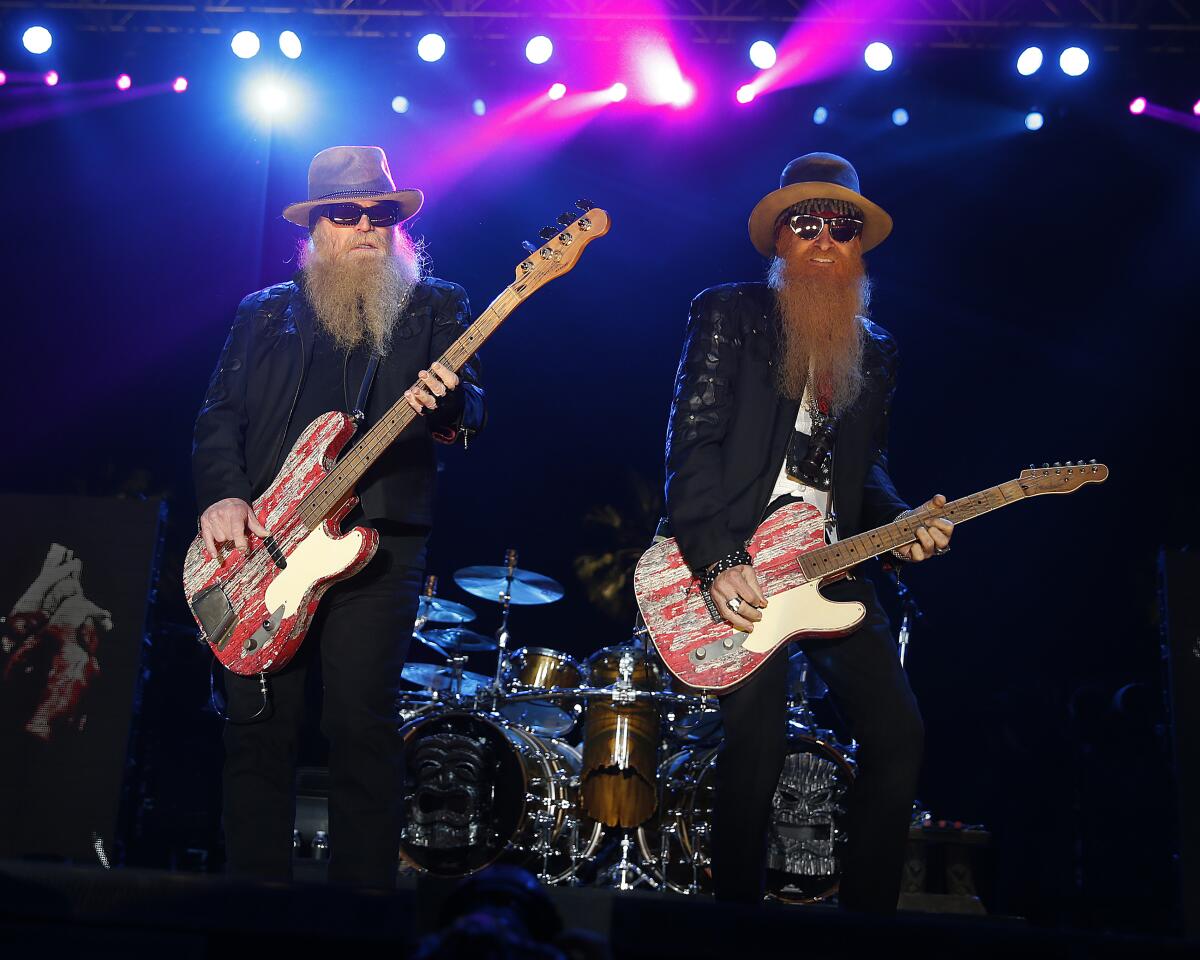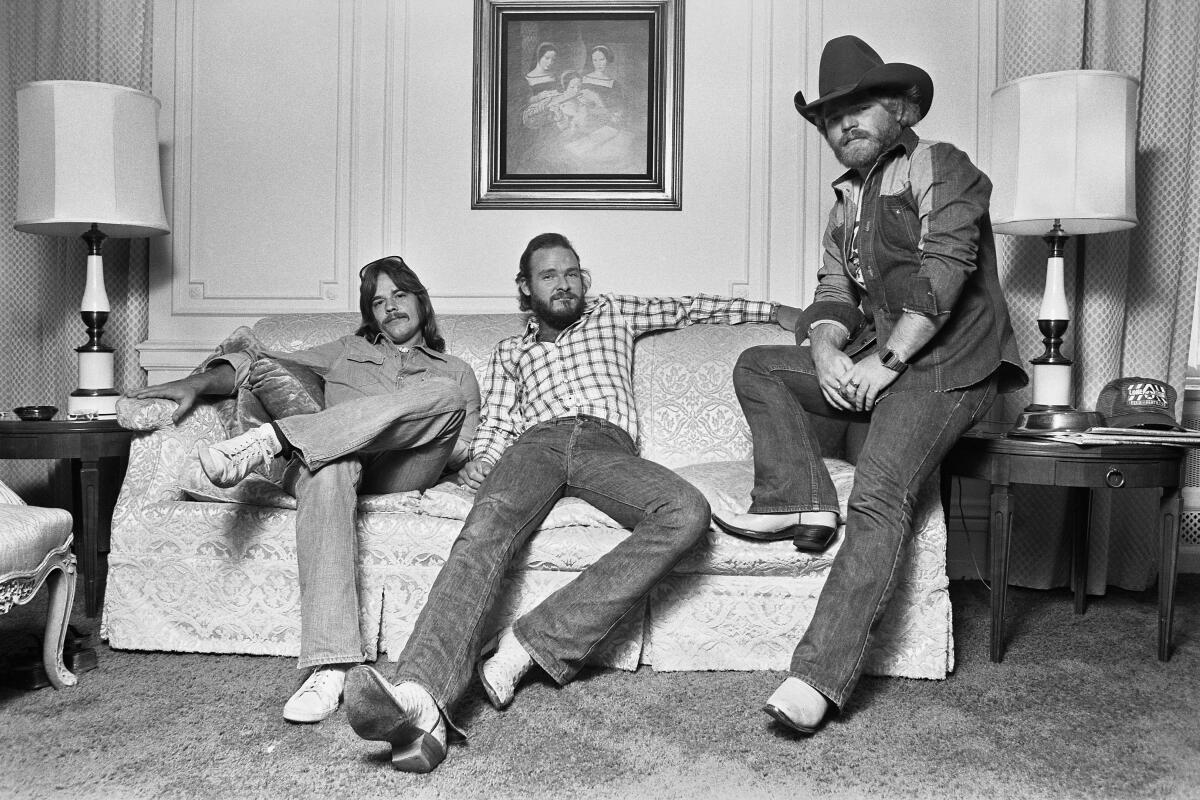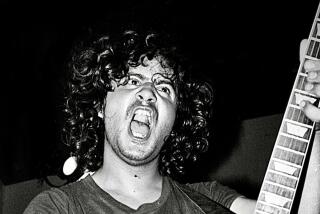ZZ Top bassist Dusty Hill dies at 72

Dusty Hill, the bass player who anchored the rock ’n’ roll band ZZ Top for more than 50 years, has died at age 72.
According to a statement released by the band, Hill died in his sleep in his Houston home. Bandmates Billy Gibbons and Frank Beard said, “We, along with legions of ZZ Top fans around the world, will miss your steadfast presence, your good nature and enduring commitment to providing that monumental bottom to the ’Top.’”
The cause of death was not given.

Born Joseph Michael Hill on May 19, 1949, Hill played in a variety of rock ’n’ roll and blues bands as a Dallas teenager, usually alongside his guitarist brother Rocky Hill and Beard. “Most bass players are guitar players first,” Dusty recalled in 2016. “I wasn’t; I was a singer and I came home from school and there was a bass guitar there, and I played a bar that night.”
The three musicians cycled through a variety of groups before parting ways in 1968 after Rocky decided he wanted to play straight blues, a shift in direction that didn’t appeal to his brother. Dusty and Beard headed to Houston, spending a little time playing in an imposter version of the British Invasion band the Zombies — Hill later couldn’t explain how that happened, dismissing the whole situation with “It was the ‘60s, man” — before they teamed up with Billy Gibbons, a guitarist who led the psychedelic outfit the Moving Sidewalks.

Gibbons had just formed ZZ Top, releasing the “Salt Lick“/”Miller’s Farm” single in 1969. Beard and Hill joined ZZ Top in rapid succession, after which the group signed with London Records. “ZZ Top’s First Album” arrived in 1971, but the band hits its stride on 1973’s “Tres Hombres,” honing its heavy blues and amplifying its Texas roots in both words and image. The boogie-rock groove of “La Grange” brought them their first hit — the single just missed Billboard’s Top 40 —and a photograph of a Tex-Mex feast from Houston’s Leo’s Mexican Restaurant, splashed across the album’s inner gatefold sleeve, launched ZZ Top as de facto ambassadors for Texas culture.
Soon, they earned the nickname of “That Little Ol’ Band From Texas” and set out on their Worldwide Texas Tour in support of 1975’s “Fandango!,” an album that featured Hill singing lead on “Tush,” a ribald rocker that became their calling card. Hill also had a heavy vocal presence on 1976’s “Tejas,” taking the lead on “Ten Dollar Man” and duetting with Gibbons on “It’s Only Love.”
ZZ Top spent the mid-1970s cranking out albums and relentlessly touring. Exhausted — and, in Beard’s case, in need of a stint in rehab — the band took an extended hiatus toward the end of the decade. During the break, Hill worked at the Dallas airport to keep himself grounded and busy. When the group returned with “Degüello” in 1979, it brought an unforgettable new image — Gibbons and Hill both sported massive beards — and a more modern sound, incorporating the sleek sonics of new wave, a shift evident on the singles “Cheap Sunglasses” and “Pearl Necklace.”

ZZ Top continued to slyly adapt musical fashions without abandoning their blues base, a combination that turned them into superstars when the fledgling cable network MTV embraced the singles from 1983’s synth-heavy “Eliminator.” Accompanied by tongue-in-cheek videos where the group, often flocked by women with big hair and short skirts, bestowed good fortune in those in need, “Gimme All Your Lovin’,” “Sharp Dressed Man” and “Legs” became smash hits on MTV and radio, turning ZZ Top into the rare ‘70s rock band that thrived in the 1980s. The subsequent “Afterburner” and “Recycler” albums kept the trio at the top of the charts.
The group became so iconic that their cameo in 1990’s “Back to the Future Part III” served as a punchline of sorts, with Hill and Gibbons spinning their stringed instruments just like they did on their big MTV hits. Given their cultural omnipresence, it was little wonder RCA Records decided to sign the group to a $35 million deal in 1994.
RCA’s bet didn’t quite pay off. “Antenna,” their 1994 debut for the label, was the only RCA record ZZ Top released to be certified either gold or platinum by the RIAA, with their other three RCA albums in the next decade appealing primarily to devoted fans. Still, ZZ Top was part of the firmament of pop culture. Dusty Hill was recognizable enough to play himself on a 1998 episode of “The Drew Carey Show.” Nearly a decade later, he returned to television in a 2007 episode of “King of the Hill,” where he played the cousin of the show’s lead character, Hank Hill.

Despite their downturn in sales, ZZ Top remained a lucrative enterprise. After their 2004 induction to the Rock & Roll Hall of Fame, the band toured regularly through the back half of the 2000s. “La Futura,” their 2012 album produced by Rick Rubin, cracked the Billboard Top 10. It would be the last studio album Dusty Hill would make.
Hill began having health problems in 2014, when he fell inside ZZ Top’s tour bus, injuring his hip badly enough to warrant subsequent hip replacement surgery. In 2021, another hip injury forced him to bow out of the group’s 50th anniversary tour. After canceling a July 21 show in Evansville, Ind., the group played a gig two nights later with their longtime guitar tech Elwood Francis replacing Hill on bass.
Upon Hill’s death, Texas Gov. Greg Abbott tweeted, “Today we lost a great friend and a remarkable Texan.”
Hill is survived by his wife Charleen “Chuck” McCrory and his daughter Charity from a previous marriage.
More to Read
The biggest entertainment stories
Get our big stories about Hollywood, film, television, music, arts, culture and more right in your inbox as soon as they publish.
You may occasionally receive promotional content from the Los Angeles Times.










